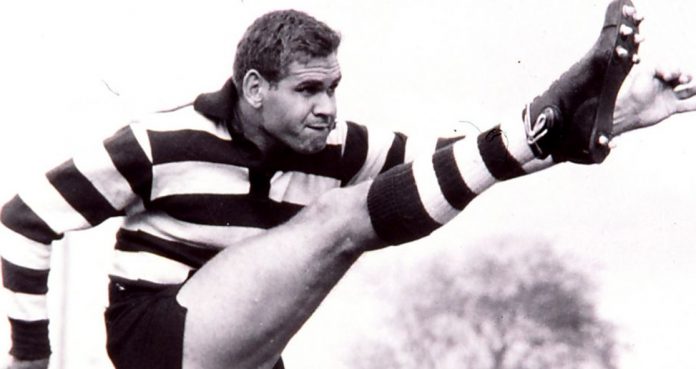Australian Football League (AFL) legend Graham ‘Polly’ Farmer has died at the age of 84 after suffering from Alzheimer’s disease for over 10 years.
Farmer played more than 350 games between 1953 and 1971 in the WAFL and VFL leagues for West Perth, East Perth, and Geelong.
According to an AFL spokesman, the football governing body had confirmed the news of his death.
He is considered one of the greatest Australian football players who revolutionized the role of the ruckman, especially “with his trademark use of the handball.”
Chief Executive of AFL Gillon McLachlan said, “The greatest big man in the history of Australian football with a record that few players could ever hope to match.”
McLachlan added, “When the Australian Football Hall of Fame was founded in 1996, Graham Farmer was one of the elite dozen players in our game’s history who was deemed both exceptional and worthy to be an inaugural Legend.”
“Our game has always started in the center square, with a contest between two big men, and Polly was the greatest of all the big men who seek to set the standard of competitiveness for their teams, lead from the front at every contest and compel their teammates to match their skills and commitment in the pursuit of victory,” continued McLachlan.
His achievements came in spite of having a bout of polio in his childhood, which left one of his legs shorter.
Farmer came from a humble background, a member of the “Stolen Generation” raised at Sister Kate’s Home, which is an “orphanage for Indigenous children in Western Australia.” He has a freeway in Perth, which was named in his honor. He was dedicated to helping young Aboriginal and Torres Strait Islander people. In 1994, he established “Polly Farmer Foundation” that provides education programs to indigenous children in Australia.






















